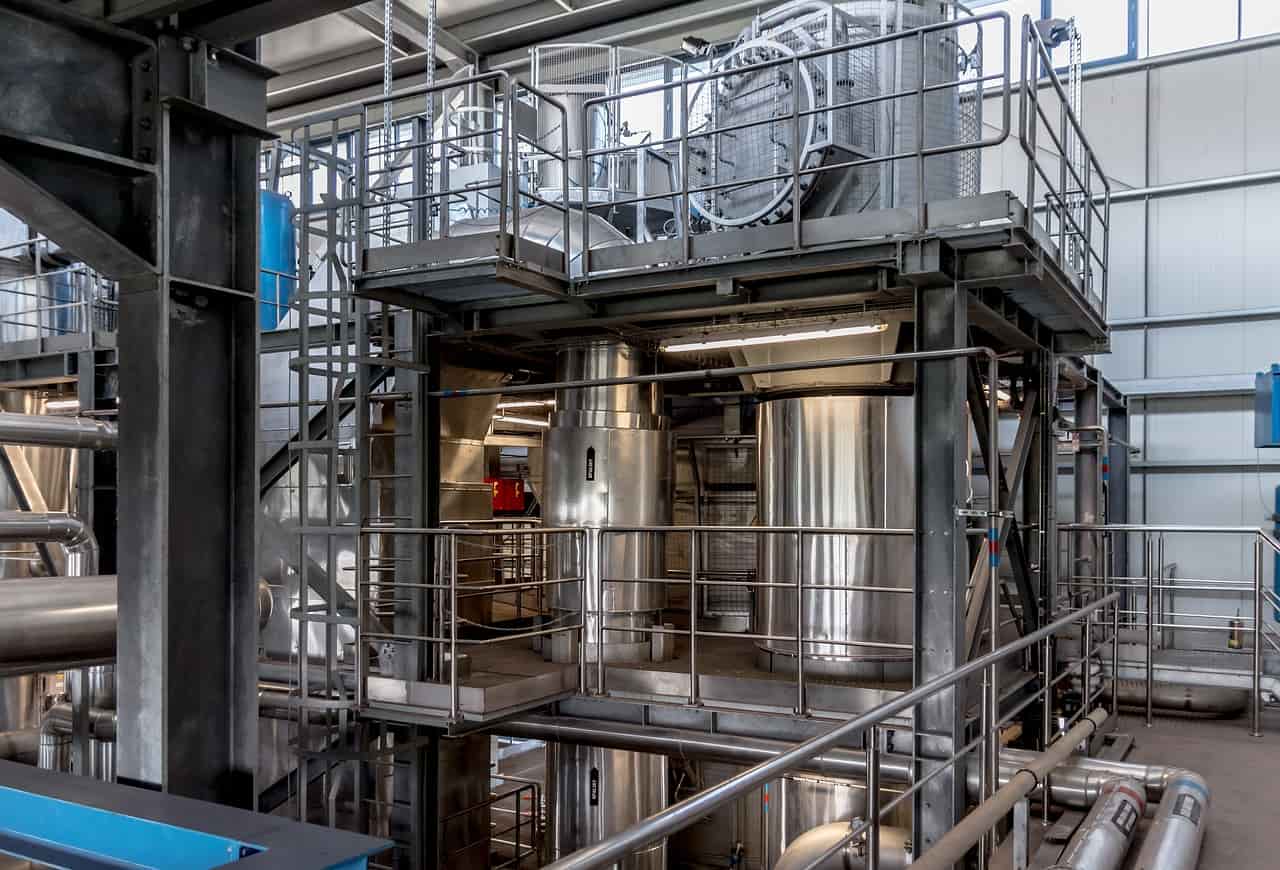Contents
Introduction to Boiler Steelvirgamet.com
Welcome to the world of Boiler Steelvirgamet.com – your ultimate guide to all things boiler steel! Whether you’re a seasoned engineer or curious about this extraordinary material, we’ve got you covered.
In this blog post, we’ll delve into the fascinating realm of boiler steel and uncover its properties, applications, and maintenance tips. So buckle up and prepare for an exciting journey through the ins and outs of one of the most essential components in modern industrial processes. Let’s dive right in!
Properties and Characteristics of Boiler Steel
- Boiler steel is a type of carbon steel specifically designed for use in building boilers and pressure vessels. Its properties and characteristics make it ideal for withstanding high temperatures, pressures, and corrosive environments.
- One of the critical properties of boiler steel is its high strength. This allows it to withstand the immense pressure exerted by steam and hot gases within a boiler or pressure vessel. Additionally, boiler steel has excellent toughness, enabling it to resist cracking or fracturing under extreme conditions.
- Another important characteristic of boiler steel is its corrosion resistance. Boiler systems often operate at elevated temperatures and come into contact with various chemicals, making corrosion resistance crucial. Boiler steel is typically alloyed with chromium, molybdenum, and nickel to enhance its corrosion resistance.
- Furthermore, boiler steel exhibits good weldability and formability, allowing for easy fabrication during manufacturing. This makes it possible to create complex shapes and structures required for efficient heat transfer within boilers.
- Regarding thermal conductivity, boiler steel has relatively low thermal conductivity compared to other metals like copper or aluminum. This property helps reduce heat loss from the system while maintaining optimal operating temperatures inside the boiler.
- These unique properties and characteristics make boiler steel essential in ensuring the safe and efficient operation of boilers across various industries, including power generation plants, chemical processing facilities, refineries, and more.
Types of Boiler Steelvirgamet.com
Boiler steel is a crucial material used in building boilers for various industries. At virgamet.com, you can find many high-quality boiler steel options to meet your specific needs.
1. Carbon Steel: This type of boiler steel contains carbon as the primary alloying element. It is appropriate for high-pressure applications due to its great strength and endurance. Carbon steel is widely used in power plants, refineries, and other industrial settings.
2. Alloy Steel: As the name suggests, alloy steel is made by adding different alloying elements, such as chromium, nickel, or molybdenum, to improve its properties. These alloys enhance corrosion resistance and provide higher temperature stability.
3. Stainless Steel: Known for its exceptional corrosion resistance properties, stainless steel is an ideal choice for boiler applications where exposure to moisture or corrosive chemicals is expected. Stain steel’s ability to withstand extreme temperatures and pressures ensures long-lasting performance.
4. Nickel-based Alloys: These alloys are highly resistant to oxidation and offer outstanding strength at elevated temperatures. They are commonly used in critical areas like superheaters and reheaters due to their superior creep resistance properties.
5. Clad Plates: Clad plates consist of multiple layers with different materials bonded together through hot rolling or explosive welding techniques. Using clad plates allows manufacturers to combine other characteristics from various metals into one product.
Uses and Applications of Boiler Steel
Boiler steel is widely used in various industries due to its high strength, durability, and resistance to extreme temperatures. One of the primary uses of boiler steel is in constructing boilers for power generation plants. These boilers convert water into steam, which powers turbines to generate electricity.
In addition to power generation, boiler steel also finds applications in the manufacturing industry. It is commonly used to produce pressure vessels, heat exchangers, and storage tanks. The robust nature of boiler steel makes it ideal for containing gases or liquids under high pressure.
Another important boiler steel application is seen in the oil and gas industry. It is utilized in pipelines that transport oil and gas over long distances. The ability of boiler steel to withstand harsh environmental conditions and resist corrosion ensures the safe transportation and distribution of these valuable resources.
Furthermore, boiler steel plays a vital role in the automotive sector. It is used in manufacturing components such as cylinders, engine blocks, exhaust systems, and suspension parts that require excellent mechanical properties and resistance to heat.
Moreover, boiler steel can be found in various construction projects where structural integrity is paramount. This type of steel provides the strength and stability necessary for ensuring safety, from bridges to skyscrapers.
Overall, l Boiler Steelvirgamet.com has numerous uses across different industries ranging from power generation to manufacturing sectors like oil & gas and automotive; its exceptional properties make it an indispensable material for applications requiring strength, durability, and resistance against extreme temperatures.
Factors to Consider when Choosing Boiler Steel
- When it comes to choosing boiler steel for your industrial applications, there are several factors that you need to consider. Selecting the correct type of steel is essential to ensure optimal performance and longevity of your boilers.
- One of the critical factors is the temperature resistance of the steel. Boilers operate at high temperatures and under intense pressure, so you need a steel grade that can withstand these conditions without deteriorating or losing its strength. Look for steels with high heat resistance properties, such as chromium-molybdenum alloys.
- Another factor to consider is corrosion resistance. Boiler systems often come into contact with water and steam, which can lead to corrosion over time. Choosing a steel grade with excellent corrosion resistance will help prevent rusting and prolong the lifespan of your boilers.
- Strength and durability are also crucial considerations when selecting boiler steel. You want a material that can withstand heavy loads and extreme conditions without deforming or cracking. Look for steels with high tensile strength and impact toughness.
- Additionally, cost-effectiveness should be taken into account. While higher-grade steels may offer superior performance, they can also be more expensive. Consider your budget constraints while balancing them with the desired quality standards for your application.
- Consult experts in boiler technology who have experience working with different types of boiler steelsvirgamet.com. They can provide valuable insights based on their knowledge and expertise in this field.
How do you properly maintain and care for Boiler Steel?
Maintaining and caring for boiler steel ensures its longevity and optimal performance. Here are some essential tips to help you properly maintain your boiler steel.
Regular cleaning is essential to prevent dirt, debris, and rust buildup. Use a soft brush or cloth to remove any loose particles from the surface of the steel. Avoid using abrasive cleaners that can damage the protective coating.
Inspecting for any signs of corrosion or wear is vital in detecting potential issues early on. Look for rust spots, cracks, or leaks around joints and connections. Promptly address any problems by contacting a professional technician who specializes in boiler maintenance.
Furthermore, maintaining proper water chemistry prevents scale deposits and corrosion inside the boiler system. Regular testing of water quality parameters such as pH levels and alkalinity should be done according to manufacturer guidelines.
Additionally, ensuring adequate ventilation around the boiler area helps dissipate heat effectively while avoiding moisture accumulation that can lead to corrosion.
Following recommended inspection schedules and servicing intervals will keep your boiler in top condition. Professional technicians should conduct routine inspections and perform necessary repairs or replacements as needed.
Conclusion
In this article, we have explored the world of boiler steel and its significance in various industries. We learned that boiler steel is a specialized type of carbon steel known for its high strength, durability, and resistance to extreme temperatures.
We discussed the properties and characteristics of boiler steel, including its excellent weldability and toughness. We also highlighted the different types of boiler steel available on virgamet.com, such as P265GH, 16Mo3, and P355NH.
Furthermore, we delved into the wide range of applications where boiler steel is commonly used. Boiler steel ensures safety and efficiency in these critical installations, from power plants to oil refineries and industrial boilers to pressure vessels.
When choosing boiler steel for your specific needs, it is essential to consider factors such as temperature requirements, pressure ratings, corrosion resistance properties, and cost-effectiveness. Virgamet.com offers expert guidance on selecting the correct type of boiler steel based on your unique needs.
To ensure longevity and optimal performance of the boiler, steelsvirgamet.com recommends proper maintenance and care. Regular inspections should be done to discover any symptoms of damage or wear. Additionally,virgamet.com suggests implementing preventive measures like routine cleaning procedures using appropriate cleaners or descaling agents.
Latest Articles!



